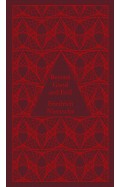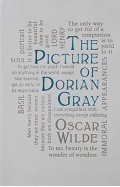On the Genealogy of Morals
By: Friedrich Nietzsche
-
Rs 1,996.00
- Rs 2,495.00
- 20%
You save Rs 499.00.
Due to constant currency fluctuation, prices are subject to change with or without notice.
Nietzsche claimed that the purpose of The Genealogy of Morals was to call attention to his previous writings. But in fact the book does much more than that, elucidating and expanding on the cryptic aphorisms of Beyond Good and Evil and signalling a return to the essay form. In these three essays, Nietzsche considers the development of ideas of 'good' and 'evil'; explores notions of guilt and bad consience; and discusses ascetic ideals and the purpose of the philosopher. Together, they form a coherent and complex discussion of morality in a work that is more accessible than some of Nietzsche's previous writings.
Friedrich Nietzsche was born near Leipzig in 1844. When he was only twenty-four he was appointed to the chair of classical philology at Basel University. From 1880, however, he divorced himself from everyday life and lived mainly abroad. Works published in the 1880s include The Gay Science, Thus Spoke Zarathustra, Beyond Good and Evil, On the Genealogy of Morals, Twilight of the Idols and The Antichrist. In January 1889, Nietzsche collapsed on a street in Turin and was subsequently institutionalized, spending the rest of his life in a condition of mental and physical paralysis. Works published after his death in 1900 include Will to Power, based on his notebooks, and Ecce Homo, his autobiography.
Michael A. Scarpitti is an independent scholar of philosophy whose principal interests include English and German thought of the eighteenth and nineteenth centuries, as well as exegesis and translation theory.
Robert C. Holub is currently Ohio Eminent Scholar and Professor of German at the Ohio State University. Among his published works are monographs on Heinrich Heine, German realism, Friedrich Nietzsche, literary and aesthetic theory, and Jürgen Habermas.
Nietzsche claimed that the purpose of The Genealogy of Morals was to call attention to his previous writings. But in fact the book does much more than that, elucidating and expanding on the cryptic aphorisms of Beyond Good and Evil and signalling a return to the essay form. In these three essays, Nietzsche considers the development of ideas of 'good' and 'evil'; explores notions of guilt and bad consience; and discusses ascetic ideals and the purpose of the philosopher. Together, they form a coherent and complex discussion of morality in a work that is more accessible than some of Nietzsche's previous writings.
Friedrich Nietzsche was born near Leipzig in 1844. When he was only twenty-four he was appointed to the chair of classical philology at Basel University. From 1880, however, he divorced himself from everyday life and lived mainly abroad. Works published in the 1880s include The Gay Science, Thus Spoke Zarathustra, Beyond Good and Evil, On the Genealogy of Morals, Twilight of the Idols and The Antichrist. In January 1889, Nietzsche collapsed on a street in Turin and was subsequently institutionalized, spending the rest of his life in a condition of mental and physical paralysis. Works published after his death in 1900 include Will to Power, based on his notebooks, and Ecce Homo, his autobiography.
Michael A. Scarpitti is an independent scholar of philosophy whose principal interests include English and German thought of the eighteenth and nineteenth centuries, as well as exegesis and translation theory.
Robert C. Holub is currently Ohio Eminent Scholar and Professor of German at the Ohio State University. Among his published works are monographs on Heinrich Heine, German realism, Friedrich Nietzsche, literary and aesthetic theory, and Jürgen Habermas.
The Birth of Tragedy: Out of the Spirit of Music (Penguin Classics)
By: Friedrich Nietzsche
Rs 1,836.00 Rs 2,295.00 Ex Tax :Rs 1,836.00
Penguin Great Ideas : Why I Am So Wise
By: Friedrich Nietzsche
Rs 1,516.00 Rs 1,895.00 Ex Tax :Rs 1,516.00
Aphorisms on Love and Hate - Penguin Little Black Classics
By: Friedrich Nietzsche
Rs 636.00 Rs 795.00 Ex Tax :Rs 636.00
Beyond Good and Evil (Penguin Pocket Hardbacks)
By: Friedrich Nietzsche
Rs 2,796.00 Rs 3,495.00 Ex Tax :Rs 2,796.00
Beyond Good and Evil (Penguin Classics)
By: Friedrich Nietzsche
Rs 1,996.00 Rs 2,495.00 Ex Tax :Rs 1,996.00
Zubin Mehta: A Musical Journey (An Authorized Biography)
By: VOID - Bakhtiar K. Dadabhoy
Rs 472.50 Rs 1,050.00 Ex Tax :Rs 472.50
South Africa's Brave New World - The Beloved Country Since the End of Apartheid
By: R.W. Johnson
Rs 765.00 Rs 850.00 Ex Tax :Rs 765.00
The Seven Husbands of Evelyn Hugo: A Novel
By: Taylor Jenkins Reid
Rs 2,156.00 Rs 2,695.00 Ex Tax :Rs 2,156.00
South Africa's Brave New World - The Beloved Country Since the End of Apartheid
By: R.W. Johnson
Rs 765.00 Rs 850.00 Ex Tax :Rs 765.00
The Seven Husbands of Evelyn Hugo: A Novel
By: Taylor Jenkins Reid
Rs 2,156.00 Rs 2,695.00 Ex Tax :Rs 2,156.00
No recently viewed books available at the moment.
Zubin Mehta: A Musical Journey (An Authorized Biography)
By: VOID - Bakhtiar K. Dadabhoy
Rs 472.50 Rs 1,050.00 Ex Tax :Rs 472.50
The Birth of Tragedy: Out of the Spirit of Music (Penguin Classics)
By: Friedrich Nietzsche
Rs 1,836.00 Rs 2,295.00 Ex Tax :Rs 1,836.00
Penguin Great Ideas : Why I Am So Wise
By: Friedrich Nietzsche
Rs 1,516.00 Rs 1,895.00 Ex Tax :Rs 1,516.00
Aphorisms on Love and Hate - Penguin Little Black Classics
By: Friedrich Nietzsche
Rs 636.00 Rs 795.00 Ex Tax :Rs 636.00
Beyond Good and Evil (Penguin Pocket Hardbacks)
By: Friedrich Nietzsche
Rs 2,796.00 Rs 3,495.00 Ex Tax :Rs 2,796.00
Beyond Good and Evil (Penguin Classics)
By: Friedrich Nietzsche
Rs 1,996.00 Rs 2,495.00 Ex Tax :Rs 1,996.00
South Africa's Brave New World - The Beloved Country Since the End of Apartheid
By: R.W. Johnson
Rs 765.00 Rs 850.00 Ex Tax :Rs 765.00
The Seven Husbands of Evelyn Hugo: A Novel
By: Taylor Jenkins Reid
Rs 2,156.00 Rs 2,695.00 Ex Tax :Rs 2,156.00













-120x187.jpg?q6)







-120x187.jpg?q6)







-120x187.jpg?q6)











